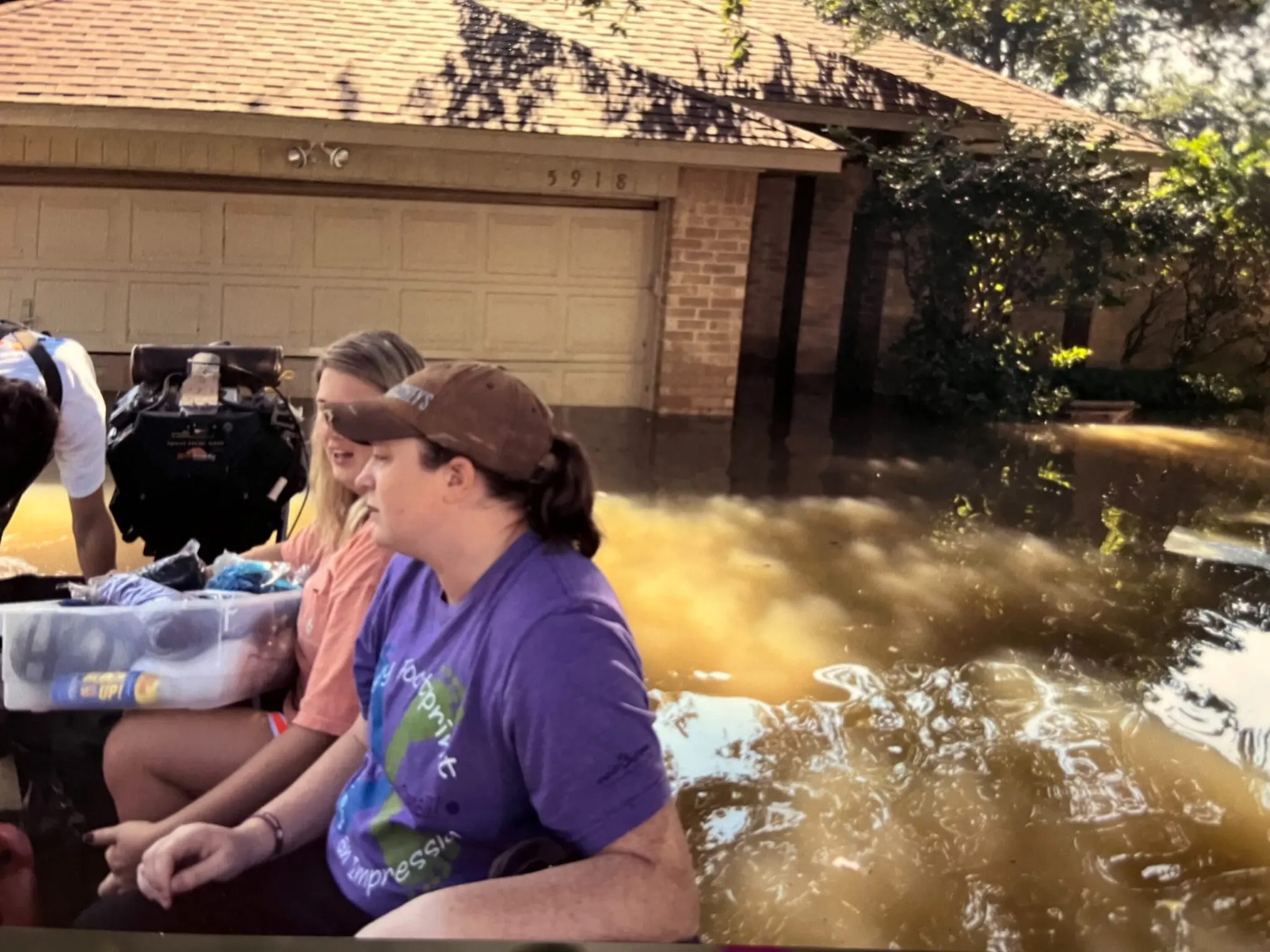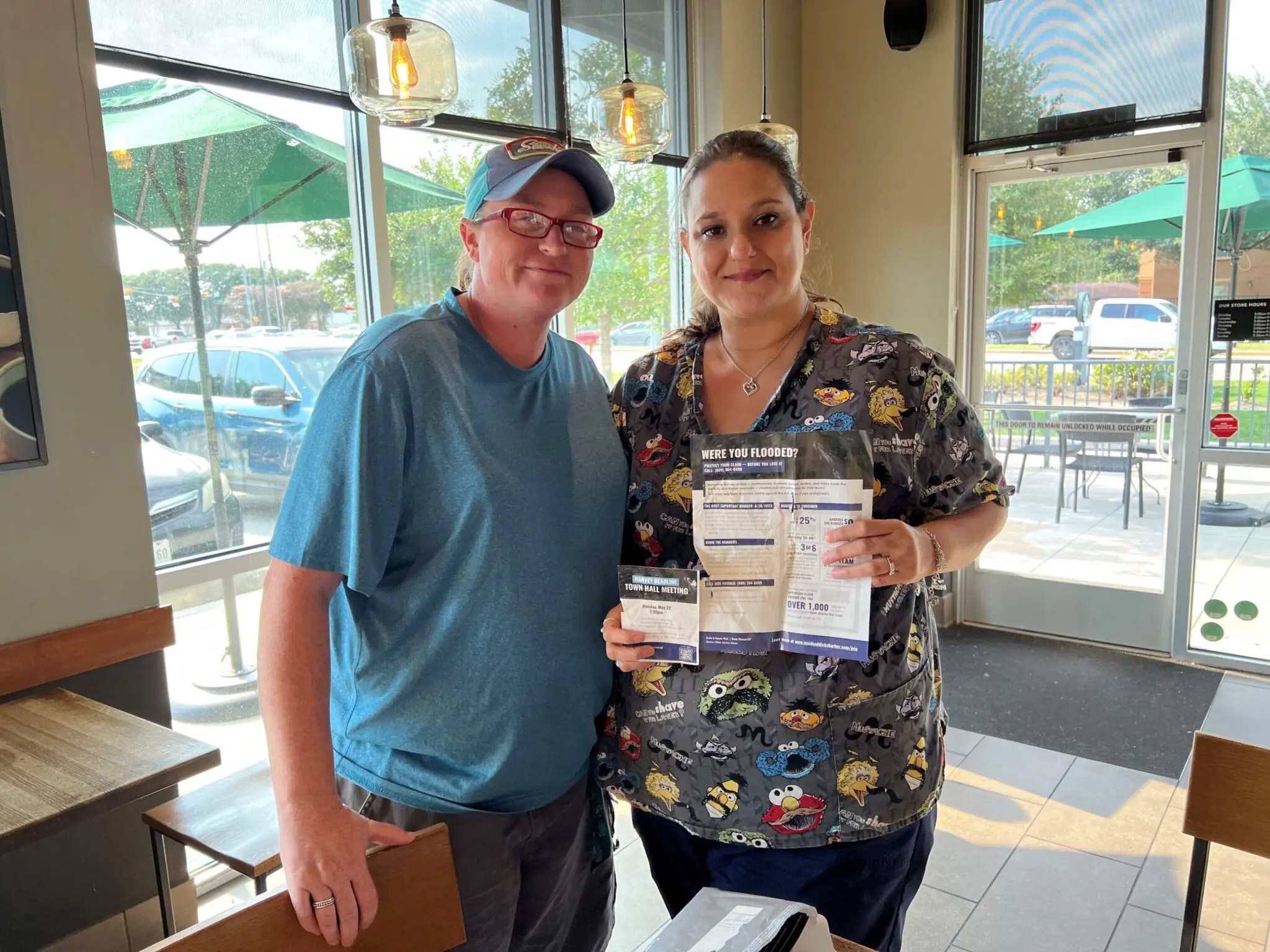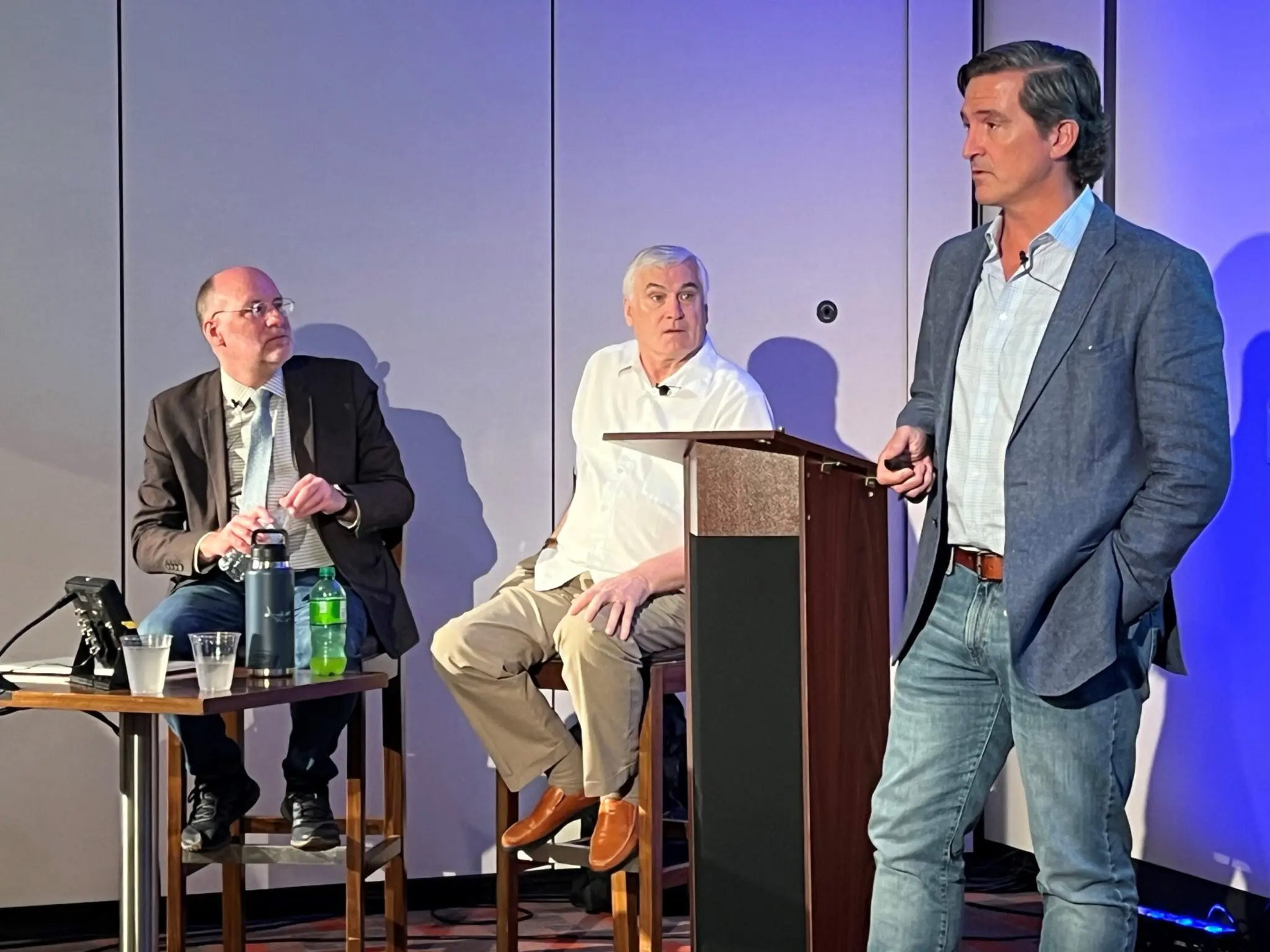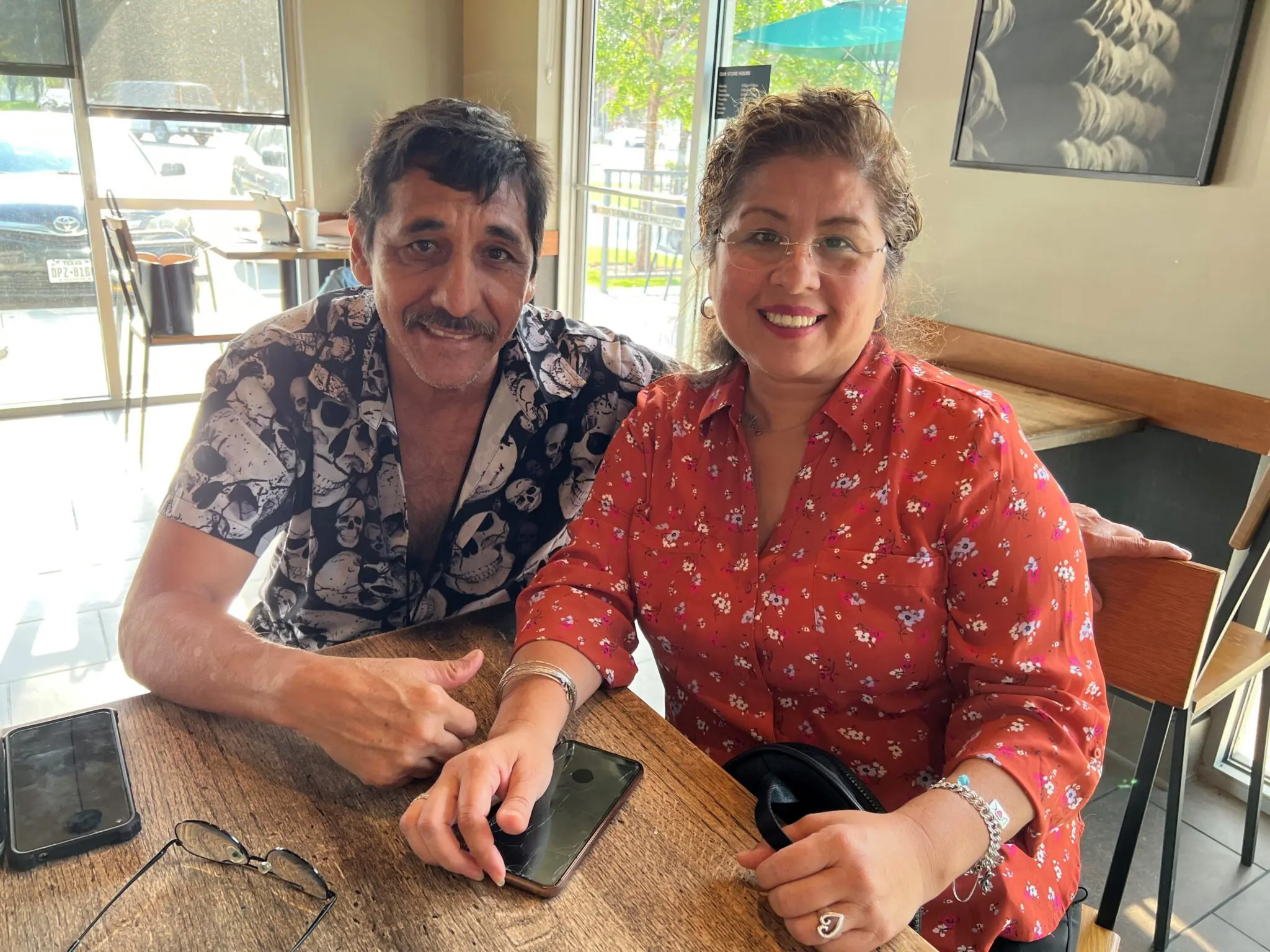For a detailed explanation of how the Addicks and Barker Reservoirs flooded people’s homes during Hurricane Harvey, and of what’s being done to try and prevent similar floods in the future, check out Episode 2 of Houston Public Media’s award-winning podcast, “Below the Waterlines.”
This August will mark six years since Hurricane Harvey struck Houston. It will also mark the deadline for thousands of people to sue the federal government if Harvey caused the Addicks and Barker Reservoirs to flood their homes or businesses. Surprisingly many are passing up their last chance to seek compensation.
Maria Perez and Lisa Johnson bought their home in the Concord Bridge subdivision of northwest Houston nine years ago, not long after they married. At the end of their block was a sign that read, “Addicks Reservoir.” Maria said they didn’t really think about what that meant.
“When we bought the house, they checked that it had not flooded in a thousand-year record,” she said. “So, I guess maybe we weren’t concerned about it so much.”
What it meant was that they were inside the Addicks Dam, so when Harvey hit, more than three feet of water flooded their home. Lisa lost her grandmother’s China cabinet. Maria, whose wedding dress was ruined, was plagued by asthma attacks during the cleanup. But the worst affected was their eldest son, then aged two.
“My two-year-old, he lost all his speech. He couldn’t talk anymore. He would point at the door and cry every night wanting to leave the hotel,” Maria said.

















